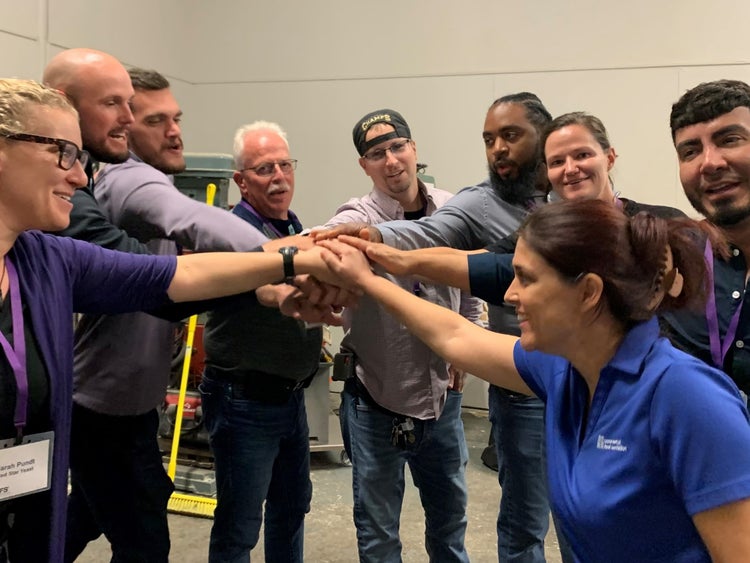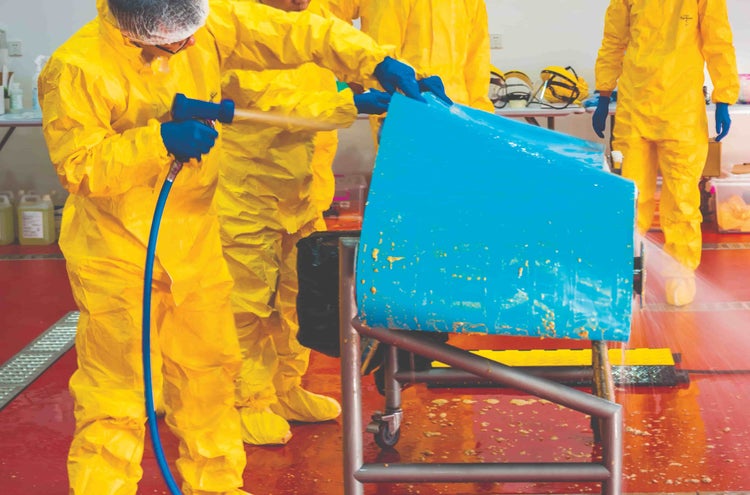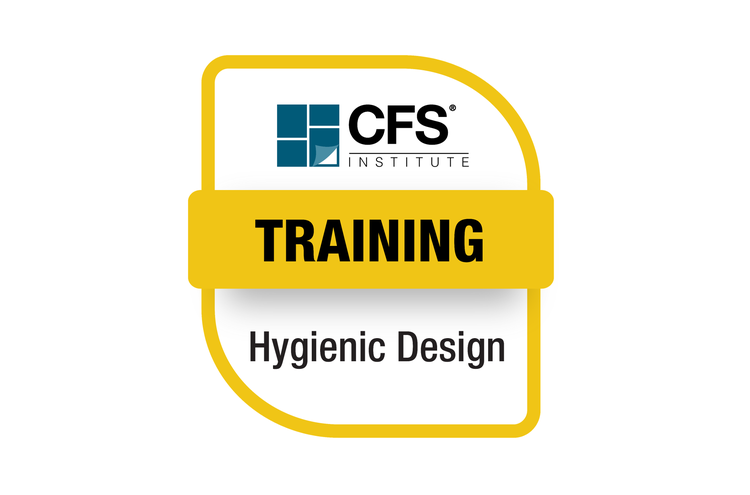How to Begin Building a Culture of Food Safety

You understand the importance of hygienic design in your operation. You’re anxious to make sweeping improvements in your plants. Maybe you’ve even already begun—new equipment, new processes, new layouts.
But is your team ready to keep up?
“A plant’s food safety is only as good as its culture,” says Nicole Cammarata, Global Training Manager at Commercial Food Sanitation (CFS). “Hygienically designed systems need hygienically minded operators. They need proper procedures.”
In other words, if your team’s knowledge doesn’t grow with your operational improvements, your line will be held back by outdated and suboptimal protocols.
We met with our expert to discuss how dedicated training sessions can close the gap between technical and cultural progress.
Hygienically designed systems need hygienically minded operators.”
Build Your Knowledge
“The surest way to build proper protocols is with hands-on, team-wide training,” Cammarata says.
She’s referring to the CFS Institute’s dedicated training sessions. These sharpen your team’s knowledge and skills in key areas like environmental monitoring, Hygienic Design, dry and wet cleaning, allergen management, hygienic zoning, and more.
Perhaps more importantly, Cammarata says, the sessions offer tools for motivating coworkers to care about proper food safety.
“That’s how culture begins,” she says. “CFS has you start generating that passion for food safety before you even leave the training.”
To earn their certificate in the two basic courses—Sanitation Essentials Training (SET) and Hygienic Design Training (HDT)—participants are required to bring something they learned to team members at their facilities.
Class sizes vary by training type, with enrollment limits designed to guarantee an optimal learning experience. The sessions are available in five locations around the world: New Orleans, Amsterdam, Shanghai, São Paulo, and Melbourne.
OSI Group’s Asia-Pacific branch recently took both courses. The week-long training session was tailored exclusively to OSI’s goals and focused intensively on hands-on breakout sessions in which they applied their new knowledge as they learned it.
“I’ve received lots of positive feedback from our team members,” says Arnold Hsu, VP of Quality Assurance at OSI Asia-Pacific. “The experience and knowledge they have secured will be of tremendous value.”
It may be individuals who are learning, but the whole company feels the benefit of that shared knowledge, that connection.”
Build Your Team
More than knowledge growth, Cammarata says, the key is that collaboration—and competition—in dedicated training sessions focuses your team into a cohesive unit.
“It strengthens relationships,” Cammarata says. “You meet people you normally wouldn’t, you have fun competing with them. You form strong bonds with new collaborators.”
It wasn’t simply that OSI’s skills got sharper. It was the interaction between diverse plants and departments plus the sharing of ideals, goals, and even hygienic vocabulary that made it successful.
“It’s team-wide growth,” she continues. “You all start to speak the same language. It may be individuals who are learning, but the whole company feels the benefit of that shared knowledge, that connection.”
This investment in your team comes with myriad other benefits to your operation as well—like more efficiency, better retention, and improved performance and motivation.
Jacobs Douwe Egberts (JDE) found their first dedicated training in Shanghai so valuable that they enrolled for another in Amsterdam, reaping benefits and building common ground across continents.
Over two-and-a-half days, 24 JDE team members performed cleaning procedures themselves in wet and dry processing environments. This hands-on training taught them how to develop robust programs for sanitation, environmental monitoring, and allergen management.
“Dedicated Sanitation Essentials Training was a fantastic opportunity for people to deep dive into different sanitation practices,” says Liam Murphy, Business Integrity Quality Manager at JDE. “By taking part in the cleaning activities, it challenges the participants’ understanding and motivates them to turn sanitation activities into structured improvement opportunities with a safety mindset.”
It’s more than a technical training. You do increase those hands-on skills, but you create alignment while you do it. You create shared understanding. You create a culture.”

Build Your Culture
Creating a company culture of food safety requires a combination of informed, intentioned procedures and motivated, connected personnel. In other words, the right knowledge and the right team.
The fastest, most reliable path to both is dedicated training. Its format uniquely and intuitively builds both assets at once, leaving you with highly skilled individuals and highly focused teams.
“It’s more than a technical training,” Cammarata says. “You do increase those hands-on skills, but you create alignment while you do it. You create shared understanding. You create a culture.”
Visit our website to learn more about CFS’s dedicated training sessions, view the course calendar, or enroll.



